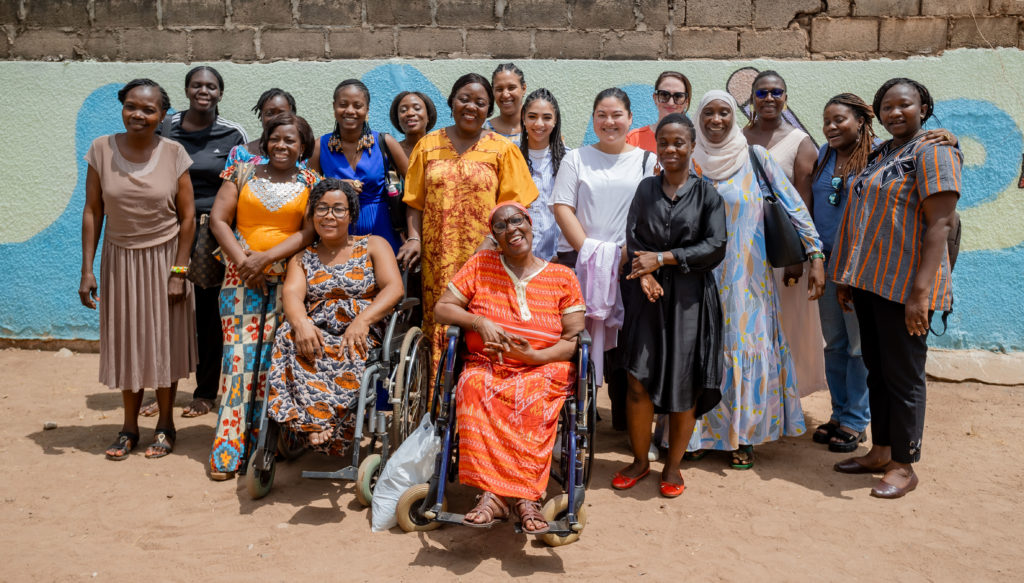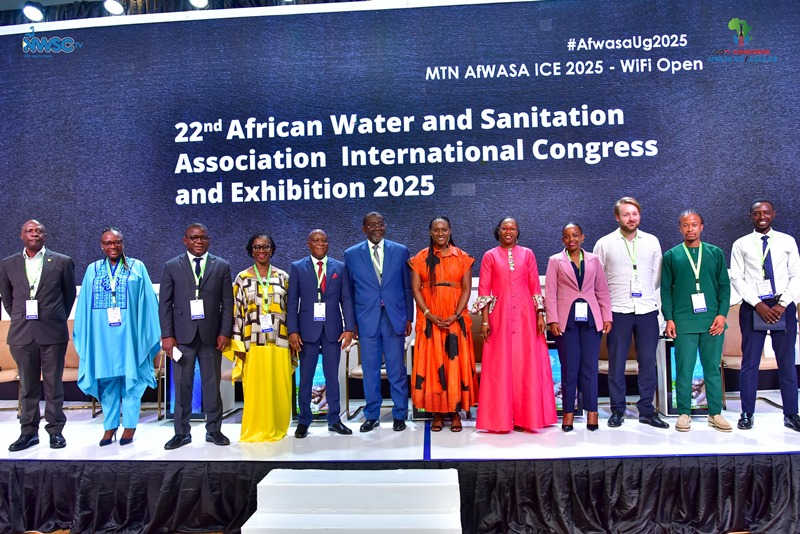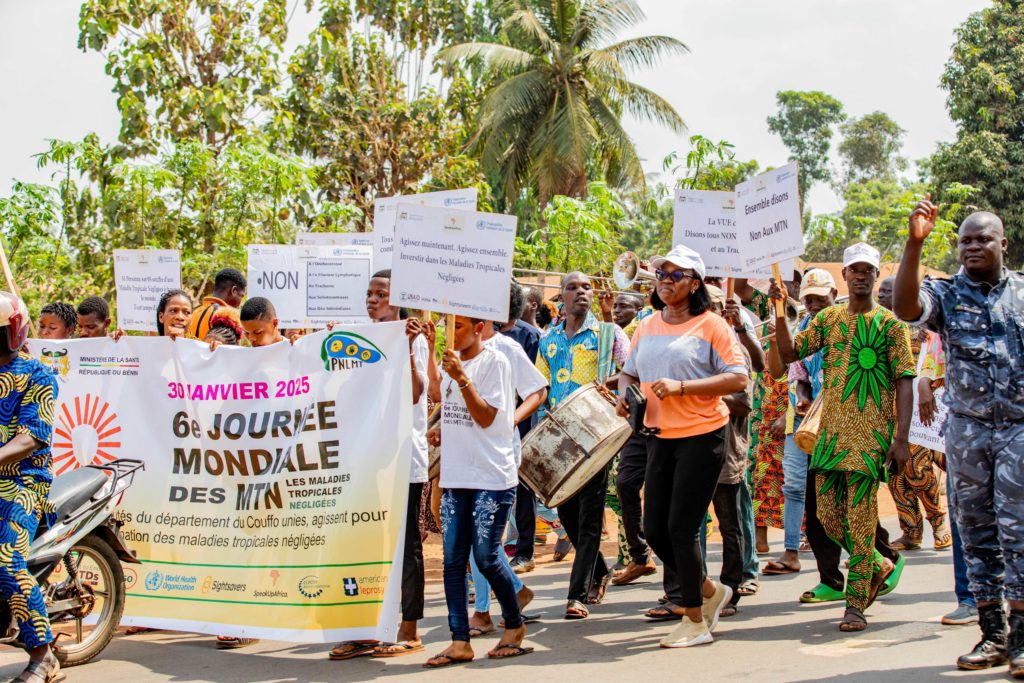Access to clean water and basic sanitation can defeat a vicious cycle of poverty and disease

Dr Mwelecele Ntuli Malecela, Director, WHO Department of Control of Neglected Tropical Diseases
Neglected tropical diseases (NTDs) affect more than one billion people across 149 countries worldwide. Yet, as their names suggest, they remain largely hidden and receive little attention.
NTDs are mainly distributed in rural, marginalized areas where they inflict not only immense suffering on affected communities but also negatively impact the social and economic development of entire populations.
Interestingly, five of the common NTDs are preventable with safe, quality-assured donated medicines that can be easily administered to entire affected and at-risk populations.
One of the key approaches for reducing the prevalence of NTDs is improved access to water, sanitation and hygiene (WASH). Acknowledging the vital link between NTDs and WASH, in 2015 the World Health Organization (WHO) launched a global WASH strategy 2015–2020 to accelerate and sustain progress on NTDs, and in January 2019 published a WASH–NTD toolkit to build stronger partnerships, shape programmes and support control interventions.
Sadly, today, some 2.4 billion people remain without access to basic sanitation facilities, and 663 million do not have access to improved sources of drinking-water.
Lack of potable water and sanitation decreases quality of life. Furthermore, patients suffering from many NTDs such as lymphatic filariasis and leprosy must have clean water to manage their symptoms. Dracunculiasis, Buruli ulcer and cutaneous leishmaniasis cause wounds that require prolonged care, with the latter two diseases often requiring surgery and rigorous personal hygiene to ensure effective treatment.
Scientific reviews demonstrate that safe water significantly reduces risks of contracting schistosomiasis – a parasitic infection caused by worms that inhabit fresh water. The incidence of trachoma, which can cause irreversible blindness, can be lowered by access to sanitation. Even mass treatment programmes for prevention and treatment of NTDs require safe-drinking water to be effective.
By focusing on the impact of WASH on NTDs and on their relationship, we are now one step closer to eliminating some of these diseases of poverty. WASH can improve health, prosperity and sustainability. But for WASH to work effectively, however, the private and public sectors must mobilize technical expertise and resources and, more importantly, ensure that investments reach affected populations and make a difference to affected communities.
In the 20 years since WHO prioritized the elimination of trachoma – a leading infectious cause of blindness – Ghana has become the first sub-Saharan country to eliminate the disease as a public health problem.
By working together, partners have successfully delivered the WHO-endorsed SAFE strategy, encompassing surgery, antibiotics, facial cleanliness and environmental improvement. The links between them are strong, and a decisive conclusion can be made: access to clean water and basic sanitation can help to prevent NTDs and aid treatment.
But despite the progress, much remains to be done.
The level of support provided by pharmaceutical companies, governments and private donors has made a huge impact in reducing and eliminating NTDs. However, this will not bring us to achieving NTD elimination, which is why the new NTD roadmap 2021–2030 is built on, and advocates for, strong country involvement and leadership.
The three strategic priorities of this new roadmap are to accelerate programmatic action, intensify cross-cutting approaches and change operating models and culture. More specifically, we aim to achieve WHO’s “triple billion targets” to ensure that, by 2023 one billion more people benefit from universal health coverage; one billion more people have better protection from health emergencies health; and one billion more people enjoy better health and well-being.
While the targets of the new roadmap may be ambitious given global financial uncertainty, political instability and the widespread burden of NTDs, they are feasible: country involvement will be crucial to the successful implementation of programmes.
The new roadmap recognizes the need for cross-sector collaboration, now more than ever. Both the private and public sectors are working collaboratively with governments to advance effective and sustainable elimination of NTDs. Also, countries are increasingly aware they need to invest in elimination of NTDs by positioning themselves in the centre of the fight.
To increase international collaboration, the Expanded Special Project for Elimination of Neglected Tropical Diseases (ESPEN) was created in 2016 to accelerate elimination of the five most prevalent NTDs. ESPEN is working tirelessly to realize its vision of an Africa free of NTDs. It contributes to the broader WHO target of universal health coverage, long-term sustainability and strengthening of health systems through country ownership and leadership of control and elimination programmes, and data-sharing for evidence-based action.
With only 0.6% of global funding for the control of NTDs, we urgently need more resources. With strong leadership and commitment, we can have sustainable programmes that are embedded within health systems, not added as an afterthought.
In many ways, inadequate access to WASH and NTDs are signs of inequality.
The prevalence of NTDs and inadequate WASH services present major global challenges as they perpetuate a vicious cycle of poverty and disease. By improving one, we can help eliminate the other.
No one should be left behind, especially not because of something as “basic” as access to adequate WASH facilities.
We need not only to take action, but to sustain action. Let us renew our commitment to ensure that these diseases of poverty are eliminated.
I want to see an Africa free of NTDs, and that is why I have signed the “No to NTDs” petition. I hope you do too.
It is time that we say “No to NTDs”. It is time that we speak up, step up and act.


